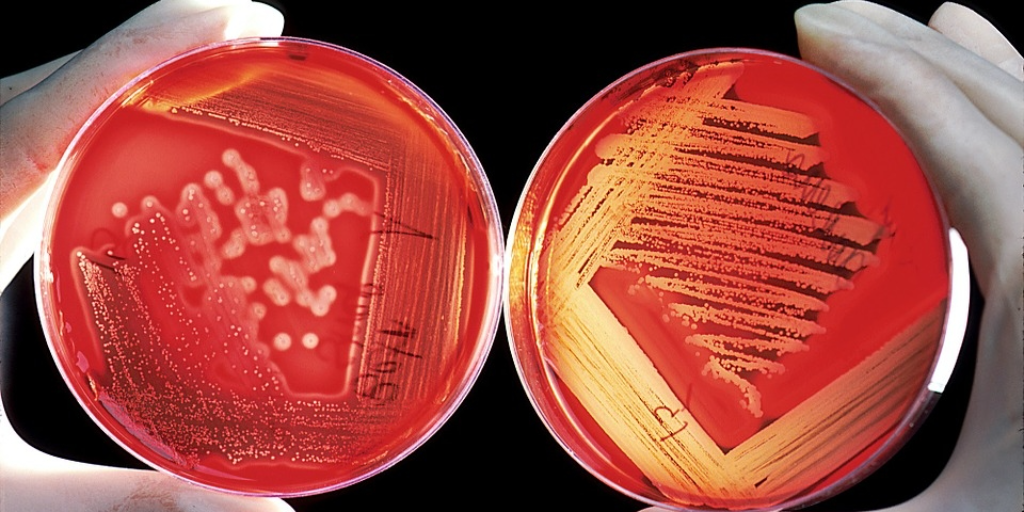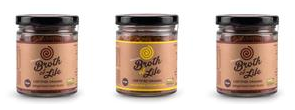
Article written by Dr. Francis Collins - National Institute of Health
Many people still regard bacteria and other microbes just as disease-causing germs. But it's a lot more complicated than that. In fact, it's become increasingly clear that the healthy human body is teeming with microorganisms, many of which play essential roles in our metabolism, our immune response, and even our mental health. We are not just an organism, we are a 'superorganism' made up of human cells and microbial cells' and the microbes outnumber us! Fueling this new understanding is NIH's Human Microbiome Project (HMP), a quest begun a decade ago to explore the microbial makeup of healthy Americans.
About 5 years ago, HMP researchers released their first round of data that provided a look at the microbes present in the mouth, gut, nose, and several other parts of the body [1]. Now, their second wave of data, just published in the journal Nature, has tripled this treasure trove of information, promising to further expand our understanding of the human microbiome and its role in health and disease [2]. For example, the new DNA data offer clues as to the functional roles those microbes play and how those can vary over time in different parts of the human body and from one person to the next.
The human microbiome consists of a large, but still undetermined, number of microbes. While bacteria make up the majority of the bugs calling our bodies home, other residents include single-celled archaea and fungi. And there are several types of viruses, too, in the nose and gut of otherwise perfectly healthy people.
Collectively, these bugs express millions of microbial genes, called a metagenome. The new data set includes over a million more gene families from the metagenomes than the first HMP data release, as the latest samples captured a wider swath of microbial diversity.
Sequencing metagenomes allowed the researchers to consider the biochemical abilities and potential functions of the human microbiome. Although many genes and pathways in the microbiome are not yet biochemically characterized, 19 pathways were enriched across all of the body sites examined. That means they occur specifically in groups of microbes that are adapted to live in and on human beings.
Those relatively host-specific gene pathways are likely to point the way to functional adaptations important for the microbes ability to live in harmony with humans and even to provide benefits to their human hosts. For example, the microbial metagenomes found in multiple body sites appear to have a special ability to synthesize vitamin B12, which is essential to human health.
Other specialized features were specific to particular parts of the human body. For instance, microbes found in the mouth were enriched for genes involved in the chemical modification of nitrates in our diets to nitrites, a process that has been linked to blood pressure regulation and prevention of migraines, among other health conditions. Gut microbes have a special ability to break down mannan, a carbohydrate found in many vegetables.
There were other intriguing observations, too. Haemophilus parainfluenzae has long been known to inhabit the upper respiratory tract and play a role in bronchitis and sinusitis. But the researchers found unexpectedly the bacterium also resides in multiple parts of the mouth. The specific strain varied depending on whether the microbial sample was collected from a person's cheek, tongue, or tooth surfaces. It suggests the H. parainfluenzae found on my cheek could be more similar to the one found on your cheek than it is to the one on my tongue!
Interestingly, researchers found no characteristic differences in the metagenomes of people in Houston and St. Louis, where study participants lived. Whether this holds for cities across the country will be fascinating to find out.
Some of the microbes in a particular person's gut tended to remain stable over time, while others were much more variable. Surprisingly, however, those core microbes often varied considerably from one person to the next. In other words, the gut microbiomes of people even those living in the very same city can contain a highly personalized set of bugs with as-yet undetermined implications for our health.
In total, the new data include an additional 1,631 metagenomes, bringing the complete HMP collection to 2,355 metagenomes. The new metagenomes, gathered from 265 healthy volunteers, represent the complete set of microbial DNA sequences collected from each of six different body sites. These include the edge of the nostrils, inside of the cheek, surfaces of the teeth and tongue, gut, and, in women, a recess of the vagina found behind the cervix.
The latest data release was a true group effort, led by Curtis Huttenhower at the Harvard T.H. Chan School of Public Health, Boston, MA, and The Broad Institute, Cambridge, MA. The team also included Jason Lloyd-Price, also at The Broad Institute, and Anup Mahurkar at the University of Maryland Institute for Genome Sciences, Baltimore.
In addition to our genes, lifestyles, and experiences, our microbiomes are a part of what makes each of us unique. They may also help to explain why some people are more prone to certain illnesses than others. As we learn more in the coming years about the microbial differences that may predispose individuals to good health or illness, one thing is now abundantly clear: microbes are an essential part of us.
References:
[1] Structure, function and diversity of the healthy human microbiome. Human Microbiome Project Consortium. Nature. 2012 Jun 13;486(7402):207-14.
[2] Strains, functions, and dynamics in the expanded Human Microbiome Project. Nature. 2017 Sept 20.
Links:
NIH Human Microbiome Project
Huttenhower Lab (Harvard H.T. Chan School of Public Health, Boston, MA)
NIH Support: Common Fund; National Human Genome Research Institute; National Institute of Diabetes and Digestive and Kidney Diseases; National Institute of Allergy and Infectious Diseases
Version:1.0 StartHTML:000000238 EndHTML:000000908 StartFragment:000000820 EndFragment:000000871 StartSelection:000000820 EndSelection:000000871 SourceURL:https://broth-of-life.myshopify.com/admin/blogs/51163009/articles/223134733


















